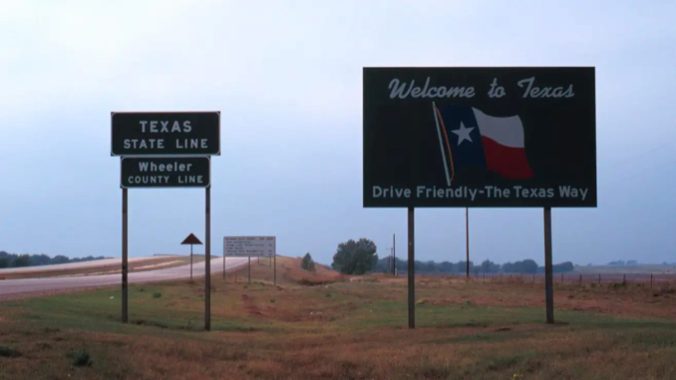Texas City Holds Third, Chaotic Meeting on Whether-Slash-How to Ban Abortion Travel
Though public comment wasn't permitted, hordes of concerned citizens showed up, forcing the council meeting to take place in the city civic center.
Photo: Jim Steinfeldt (Getty Images) Abortion Texas
This week, the city council representing Amarillo, Texas, hosted its third, hours-long meeting on the same issue: whether—and how—to enact an abortion travel ban. (Mind you, Texas already bans abortion and threatens abortion providers with life in prison.) The ordinance would be similar to what we’ve seen several counties in Texas pass over the last few months—and would outlaw anyone from using roads that pass through the county’s jurisdiction if they’re traveling to get an abortion. So far, Cochran, Mitchell, Goliad, and, most recently, Lubbock, have adopted these ordinances, which are designed to be enforced by civil lawsuits—similar to the state’s SB 8 ban, enacted in 2021, which lets people sue any Texan who helps someone have an abortion for at least $10,000. Notably, the city of Amarillo itself has a population of 200,000, compared to, say, Cochran County’s 2,500.
On Tuesday, the Texas Tribune reports that Amarillo’s five, all-male council members convened to debate three different drafts of the abortion travel ban ordinance. The meetings are typically held at the council’s headquarters, but due to an onslaught of concerned citizens, this week’s meeting took place at the city civic center to “accommodate the crowd,” per the Tribune. The crowd came even though the meeting didn’t allow public comment.
An ordinance like this has serious implications in a city like Amarillo: Two major highways run through the city, and the Tribune notes that this measure could theoretically block access to New Mexico and Colorado, two key destinations for Texas residents seeking an abortion. In New Mexico, 57% of Planned Parenthood patients come from Texas.
-

-

-

-

-

-

-

-

-

-

-

-

-

-

-

-

-

-

-

-

-

-

-

-

-

-

-

-

-

-

-

-

-

-

-

-

-

-

-

-








































